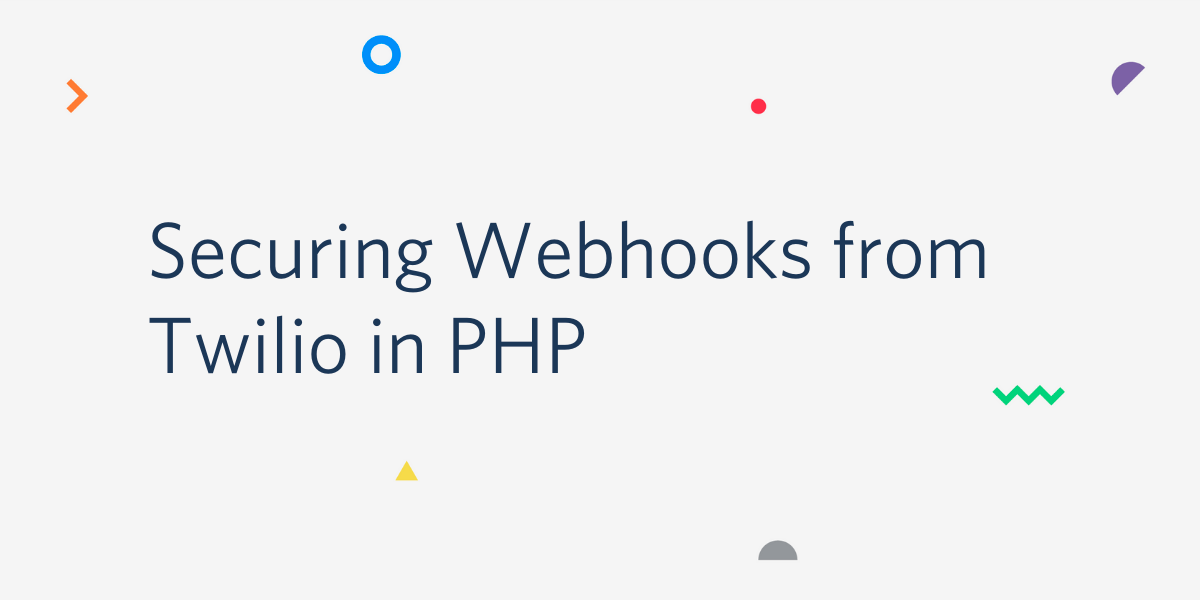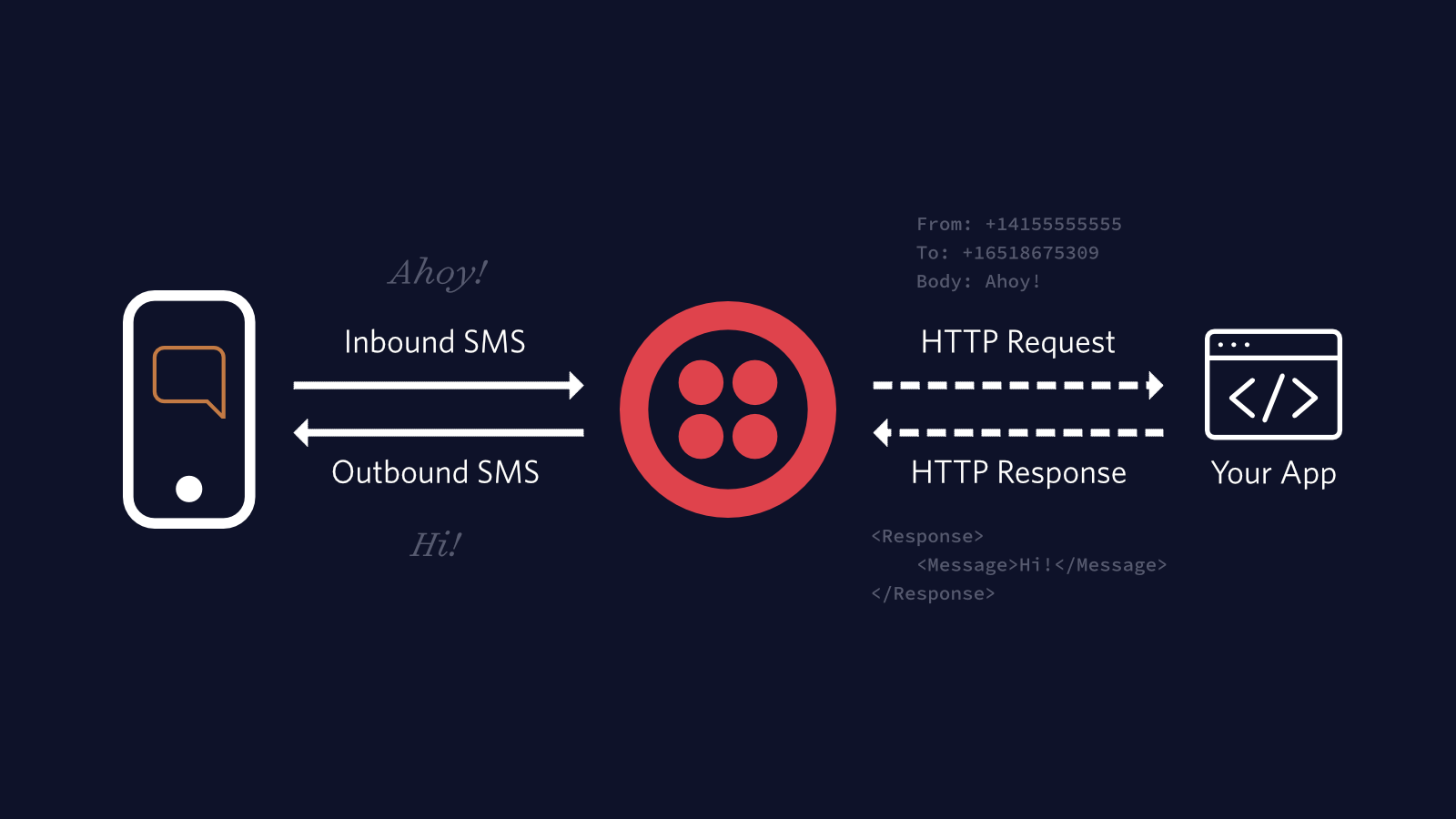Securing Webhooks from Twilio in PHP
Time to read: 1 minute

Webhooks make up the backbone of interactions with services like Twilio. When an event happens on one of our numbers, maybe it receives an SMS, then Twilio sends an HTTP request to our server with information on what happened. Typically we'll reply with instructions on how to respond to the event, perhaps we'll want to reply with an SMS of our own.

Webhooks make interacting with events from Twilio really straightforward, but they also open our application to be manipulated in unexpected ways. If someone knows your webhook URL, they can craft HTTP requests to generate fake events that were never intended.
To protect from counterfeit requests Twilio includes a signature header X-Twilio-Signature in every webhook sent to your server. We can use our secret Twilio authentication token plus the data submitted to the server to generate our own signature. We can then compare this to the header signature to ensure we only handle genuine requests sent by Twilio.
Before we get started, you’ll need the Twilio SDK for PHP, we can install it using Composer by running the command from the root of our project:
The documentation explains how the signature is generated and how we can make our own for comparison. We don't need to roll our own implementation as the Twilio SDK already includes the RequestValidator class that can perform a comparison for us. The RequestValidator class takes our authentication token as a constructor argument, and the request signature, request URL and an array of data to tell us if the request is valid or not.
We must include this check on every endpoint of our application that handles webhooks. It's also vital that we turn on TLS and only use HTTPS so that requests are end-to-end encrypted and can't be affected by man-in-the-middle attacks. In a production system, it's worth baking this into your framework. For example, if you use Laravel, you could write a middleware that would handle this automatically on any routes you add it to.
Let me know how you get on protecting your webhooks with the RequestValidator or if you'd like to know more. I can't wait to see what you build.
- Email: ghockin@twilio.com
- Twitter: @GeeH
Related Posts
Related Resources
Twilio Docs
From APIs to SDKs to sample apps
API reference documentation, SDKs, helper libraries, quickstarts, and tutorials for your language and platform.
Resource Center
The latest ebooks, industry reports, and webinars
Learn from customer engagement experts to improve your own communication.
Ahoy
Twilio's developer community hub
Best practices, code samples, and inspiration to build communications and digital engagement experiences.


